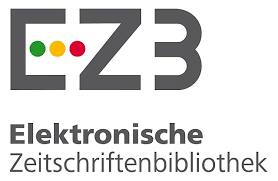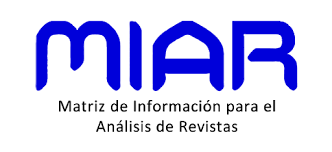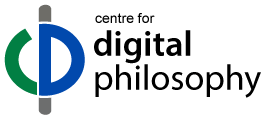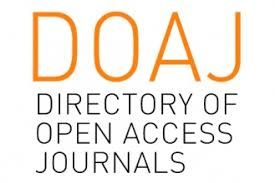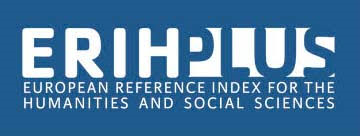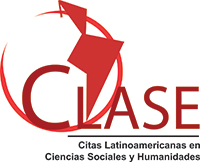Self e identidade pessoal
hibridização e expansão
DOI:
https://doi.org/10.15448/1984-6746.2023.1.44072Palavras-chave:
self híbrido, identidade pessoal, mente estendida, mente socialmente estendida, Andy ClarkResumo
Este artigo pretende mostrar, a partir de uma leitura das hipóteses da mente estendida de Andy Clark e de sua absorção das consequências funcionalistas, que os conceitos de self e identidade pessoal se encontram naturalmente diluídos no corpo e no mundo. Defenderemos com estas premissas que o movimento operado pela integração da proposta de Clark com o self autobiográfico de Richard Heersmink e a teoria padrão do self de Shaun Gallagher é um movimento de hibridização, que dá origem à imagem de um self ecológico e multifacetado, assim como de uma noção mais permeável acerca da identidade pessoal. Afinal, enquanto Clark lança luz aos movimentos funcionalistas que estendem a mente e o self no mundo, Heersmink enfatiza o papel da auto-narrativa no design do self, assim como o caráter socialmente estendido do self e as relações entre este e a identidade pessoal. Gallagher, por sua vez, reitera a relevância tanto desta dimensão social quanto da concepção de uma tese que expresse essa matização. Mais especificamente, teremos neste processo a emergência de um self híbrido.
Downloads
Referências
ADAMS, Fred. Extended Cognition meets epistemology. Philosophical Explorations, [S. l.], v. 1, n. 2, p. 107-119, 2012. DOI: https://doi.org/10.1080/13869795.2012.670717
ASADA, Minoru. Proprioception and body schema. In: PRESCOTT, Tony J.; LEPORA, Nathan; VERSCHURE, Paul F. M. J. (ed.). Living Machines: a handbook of research in biomimetic and biohybrid systems. Oxford: Oxford University Press, 2018. p. 168-175.
CLARK, Andy. Connectionist Minds. Proceedings of the Aristotelian Society, [s.l.], v. 90, n. 1, p. 83-102, 1990. DOI: https://doi.org/10.1093/aristotelian/90.1.83
CLARK, Andy. Being there: putting brain, body and world together again. 2th ed. Cambridge: The MIT Press, 1997. DOI: https://doi.org/10.7551/mitpress/1552.001.0001
CLARK, Andy. Embodiment and the Philosophy of Mind. In: O´HEAR, Anthony (ed.). Current Issues in Philosophy of Mind. Cambridge: Cambridge University Press, 1998. p. 35-52. DOI: https://doi.org/10.1017/CBO9780511563744.004
CLARK, Andy. Natural-born cyborgs: Minds, technologies, and the future of human intelligence. New York: Oxford University Press, 2003.
CLARK, Andy. Soft selves and ecological control. In: ROSS, David; SPURRETT, David; KINCAID, Harold; STEPHENS, G. Lynn. Distributed cognition and the will: individual volition and social context. Cambridge: The MIT Press, 2007. p. 101-122.. DOI: https://doi.org/10.7551/mitpress/7463.003.0007
CLARK, Andy. Supersizing the mind: embodiment, action, and cognitive extension. New York: Oxford University Press, 2008. DOI: https://doi.org/10.1093/acprof:oso/9780195333213.001.0001
CLARK, Andy. Surfing uncertainty: prediction, action, and the embodied mind. New York: Oxford University Press, 2016. DOI: https://doi.org/10.1093/acprof:oso/9780190217013.001.0001
CLARK, Andy; CHALMERS, David. The Extended Mind. Analysis, [S. l.], v. 58, n. 1, p. 7-19, 1998. DOI: https://doi.org/10.1093/analys/58.1.7
CONSTANT, Axel; CLARK, Andy; FRISTON, Karl J. Representation wars: enacting an armistice through active inference. Frontiers in Psychology, [S. l.], v. 11, n. 598733, p. 1-14, 2020. DOI: https://doi.org/10.3389/fpsyg.2020.598733
DAMÁSIO, António. O Mistério da Consciência: do corpo e das emoções ao conhecimento de si. São Paulo: Companhia das Letras, 2015.
GALLAGHER, Shaun. A pattern theory of self. Frontiers in Human Neuroscience, [S. l.], v. 7, n. 443, p. 1-7, 2013a. DOI: https://doi.org/10.3389/fnhum.2013.00443
GALLAGHER, Shaun. Philosophical conceptions of the self: implications for cognitive science. Trends in Cognitive Science, [S. l.], v. 4, n. 1, p. 14-21, 2000. DOI: https://doi.org/10.1016/S1364-6613(99)01417-5
GALLAGHER, Shaun. The extended mind: state of the question. The Southern Journal of Philosophy, [S. l.], v. 56, n. 4, p. 421-447, 2018. DOI: https://doi.org/10.1111/sjp.12308
GALLAGHER, Shaun. The socially extended mind. Cognitive Systems Research, [S. l.], v. 25, p. 4-12, 2013b. DOI: https://doi.org/10.1016/j.cogsys.2013.03.008
GALLAGHER, Shaun. Action and Interaction. Oxford: Oxford University Press, 2020. DOI: https://doi.org/10.1093/oso/9780198846345.001.0001
HEERSMINK, Richard. Distributed selves: personal identity and extended memory systems. Synthese, [S. l.], v. 194, p. 3135-3151, 2017. DOI: https://doi.org/10.1007/s11229-016-1102-4
HEERSMINK, Richard. Materialised identities: cultural identities, collective memory, and artifacts. Review of Philosophy and Psychology, [S. l.], v. 14, n. 1, p. 249-265, 2021a. DOI: https://doi.org/10.1007/s13164-021-00570-5
HEERSMINK, Richard. The narrative self, distributed memory, and evocative objects. Philosophical Studies, [S. l.], v. 175, p. 1829-1849, 2018. DOI: https://doi.org/10.1007/s11098-017-0935-0
HEERSMINK, Richard. Varieties of Artifacts: Embodied, Perceptual, Cognitive, and Affective. Topics in Cognitive Science, [S. l.], v. 4, p. 1-24, 2021b. DOI: https://doi.org/10.1111/tops.12549
HEERSMINK, Richard. Varieties of the extended self. Consciousness and Cognition, [S. l.], v. 85, n. 103001, p. 1-12, 2020. DOI: https://doi.org/10.1016/j.concog.2020.103001
ISMAEL, Jennan T. The Situated Self. New York: Oxford University Press, 2007. DOI: https://doi.org/10.1093/acprof:oso/9780195174366.001.0001
KIRCHHOFF, Michael D.; KIVERSTEIN, Julian. Extended consciousness and predictive processing: a third-wave view. New York: Routledge, 2019. DOI: https://doi.org/10.4324/9781315150420
MARAVITA, Angelo; IRIKI, Atsushi. Tools for the body (schema). Trends in Cognitive Sciences, [S. l.], v. 8, n. 2, p. 79-86, 2004. DOI: https://doi.org/10.1016/j.tics.2003.12.008
MARTIN, Raymond; BARRESI, John. Naturalization of the Soul: Self and Personal Identity in the Eighteenth Century. London; New York: Routledge, 2002.
MILLER, Mark; NAVE, Kathryn; DEANE, George; CLARK, Andy. The value of uncertainty. Aeon, 25 set. 2020. Disponível em: https://aeon.co/essays/use-uncertainty-to-leverage-the-power-of-your-predictive-brain. Acesso em: 15 nov. 2022.
NEWEN, Albert. The embodied self, the pattern theory of self, and the predictive mind. Frontiers in Psychology, [S. l.], v. 9, n. 2270, p. 1 - 14, 2018. DOI: https://doi.org/10.3389/fpsyg.2018.02270
O´HEAR, Anthony (ed.). Current Issues in Philosophy of Mind. Cambridge: Cambridge University Press, 1998.
PERUZZO JÚNIOR, Léo. Intentionality, Conceptual Content, and Emotions. Revista de Filosofia Aurora, Curitiba, v. 31, n, 54, p. 833-847, 2019. DOI: https://doi.org/10.7213/1980-5934.31.054.DS10
PERUZZO JÚNIOR, Léo; CANDIOTTO, Kleber; KARASINSKI, Murilo (org.). Tendências Contemporâneas de Filosofia da Mente e Ciências Cognitivas. Curitiba: PUCPRess, 2023.
SCHECHTMAN, Marya. Staying alive: personal identity, practical concerns, and the unity of a life. Oxford: Oxford University Press, 2014. DOI: https://doi.org/10.1093/acprof:oso/9780199684878.001.0001
SCHECHTMAN, Marya. The truth about memory. Philosophical Psychology, [S. l.], v. 7, n. 1, p. 3-18, 1994. DOI: https://doi.org/10.1080/09515089408573107
STRAWSON, Peter F. Freedom and Resentment and Other Essays. London: Routledge, 2008. DOI: https://doi.org/10.4324/9780203882566
STRAWSON, Peter F. Individuals: Essay of Descriptive Metaphysics. London: Routledge, 1996.
STROPARO, Amanda Luiza. Andy Clark: a mente que se mistura ao corpo e ao mundo. In: PERUZZO JÚNIOR, Léo; CANDIOTTO, Kleber; KARASINSKI, Murilo (org.). Tendências Contemporâneas de Filosofia da Mente e Ciências Cognitivas. Curitiba: PUCPRess, 2023. p. 315-328.
STROPARO, Amanda Luiza. Mente, Mundo e Ciborgues Naturais: Andy Clark para além do cérebro. Curitiba: Appris, 2021.
Downloads
Publicado
Como Citar
Edição
Seção
Licença
Copyright (c) 2023 Veritas (Porto Alegre)

Este trabalho está licenciado sob uma licença Creative Commons Attribution 4.0 International License.





